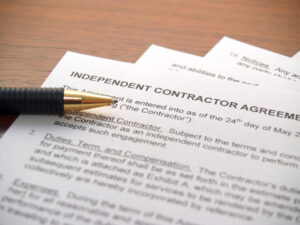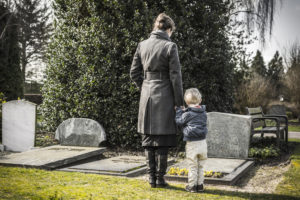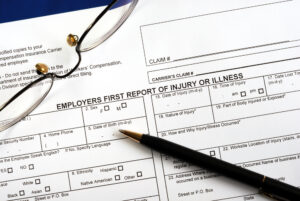
Nearly 50,000 Floridians have died of COVID-19 complications, and millions more have been diagnosed with the respiratory disease caused by the novel coronavirus. The fight against COVID-19 is only possible because first responders are willing to risk their safety to treat sick people in desperate need of help. But when these Florida workers get ill with the coronavirus themselves, there’s no guarantee they’ll receive Florida workers’ compensation benefits to cover medical treatment, lost wages, and long-term complications. A proposal introduced in the Florida House of Representatives last month aims to change this. If HB 53 becomes law, firefighters, law enforcement officers, and paramedics who suffer partial or total disability after a COVID-19 diagnosis would be eligible for higher benefits. Notably, the bill introduces the presumption that the illness occurred in the line of duty.
Last year, Florida CFO Jimmy Patronis directed the state’s Division of Risk Management to process COVID-related workers’ comp claims from public servants as compensable. Still, insurers are denying a significant portion of these claims. The Orlando Sentinel found that nearly half of workers’ comp claims filed in the first half of 2020 were denied by insurance companies. Insurers push back on COVID-19 claims because workers’ comp policies don’t usually cover infectious diseases. It’s hard to prove that illnesses like the common cold or flu are work-related. Insurance companies argue that the injured worker could have gotten infected anywhere, and there’s no guarantee that their sickness has anything to do with work conditions.
Florida Emergency Workers at Greater Risk of COVID-19
COVID-19 is significantly more contagious than other community-spread illnesses, and things are only getting worse. The new delta variant is spreading rapidly and already accounts for most coronavirus cases in the country. Because it’s even more contagious than the original strain, Florida emergency workers who come into close contact with patients are more likely to get sick due to exposure. The virus is currently the leading killer of law enforcement officers, with more officers dying of COVID-19 than gunfire or vehicle accidents in 2021. These injured workers and their families are sometimes left without a way to receive benefits.
The lack of a workers’ comp guarantee for first responders can turn lives upside down. In July, a Florida sheriff’s deputy contracted the disease while investigating a case where the victim died of COVID-19. Months later, he underwent quadruple bypass surgery and has been left unable to work due to COVID complications. His workers’ comp claims were denied by the Sheriff’s Office’s insurance company. While the officer is appealing the insurer’s decision, it’ll likely be months before he has a resolution. In the meantime, he’s at risk of being forced into early retirement. There are countless stories like this from Florida emergency workers who aren’t receiving benefits for illnesses caused by COVID-19. HB 53 would make it much easier for first responders to obtain the benefits they deserve. To qualify, they would have to sign a written affidavit attesting that they weren’t exposed to anyone outside of their workplace in the two weeks before their diagnosis. If this proposed bill becomes law, Florida first responders affected by COVID will have a much easier experience applying for benefits.
Are you a Florida first responder who has been denied workers’ compensation benefits after a COVID-19 diagnosis? A Florida workers’ comp attorney can help you appeal the decision to get compensation for the medical bills and future medical treatments, along with lost wages and decreased future earning potential. It’s a complex process that can be difficult to navigate on your own. Contact the Scott R. Marshall Law Firm online or at (727) 772-5900 for more information or a free consultation.

At the Scott R. Marshall law firm, we represent people around Florida in claims arising out of workers’ compensation, personal injury and wrongful death. Our firm believes the best way to represent clients is to take the time to get to know them. We deal directly with our clients on all legal issues and provide professional, personal and aggressive representation.














Comments for this article are closed.